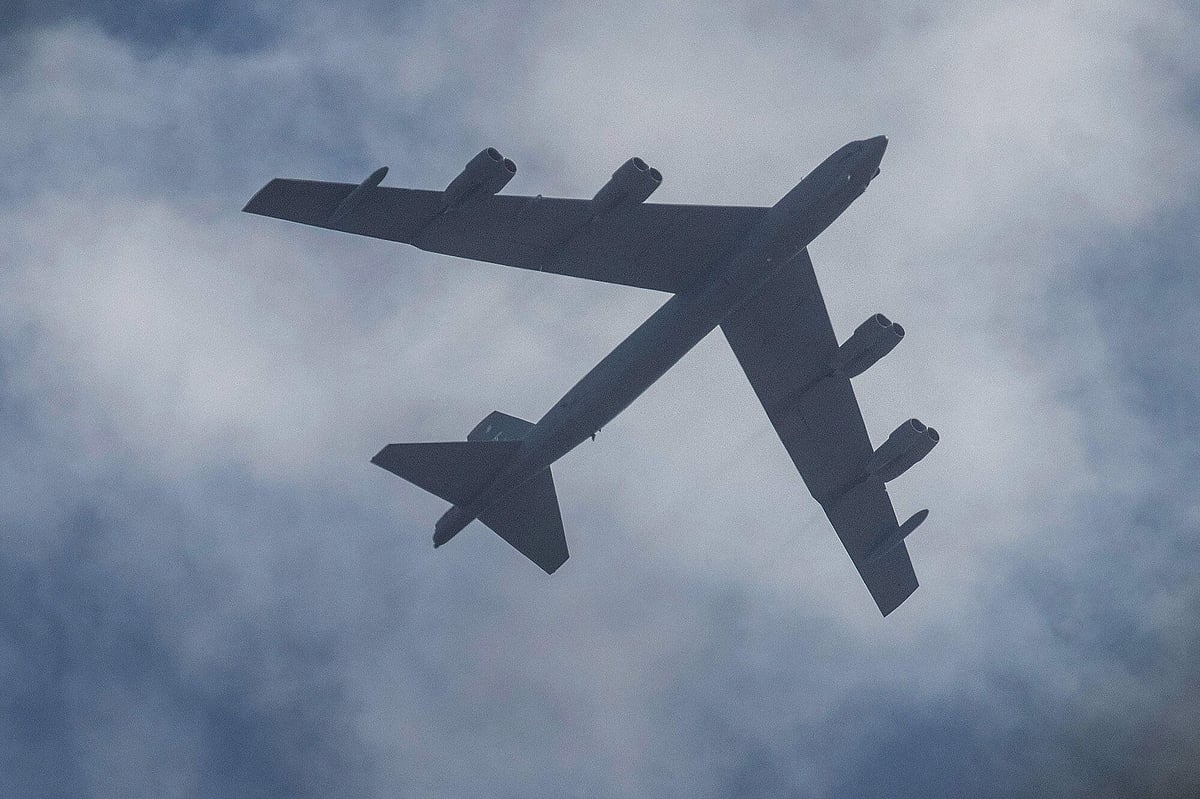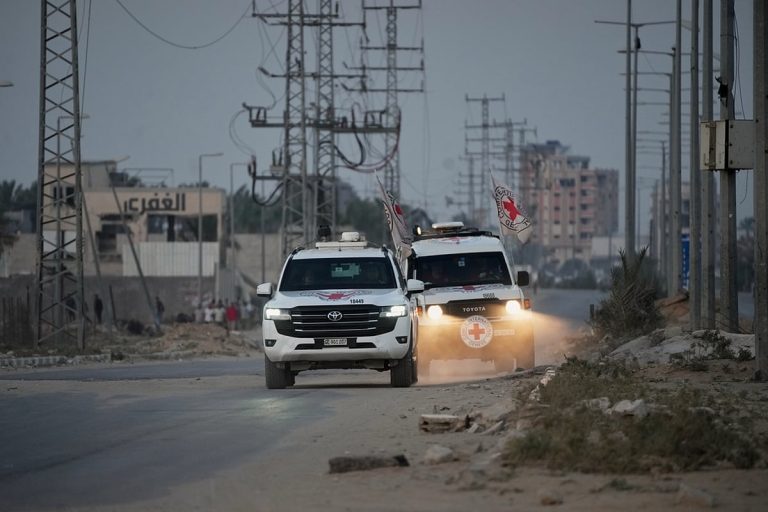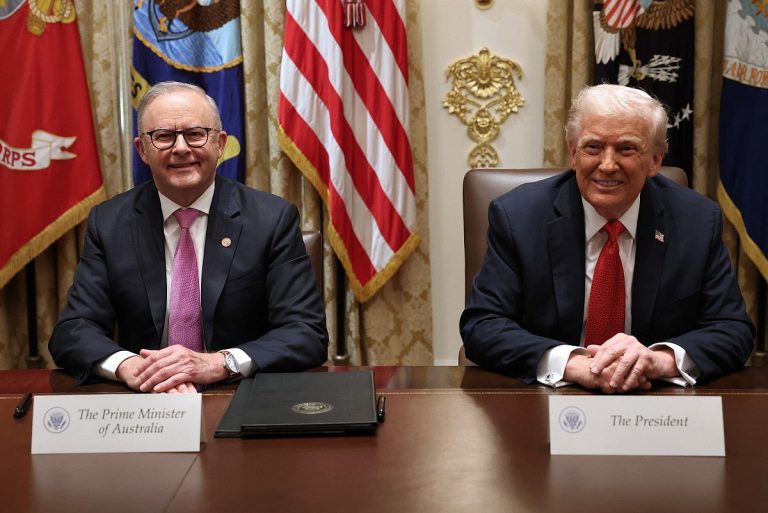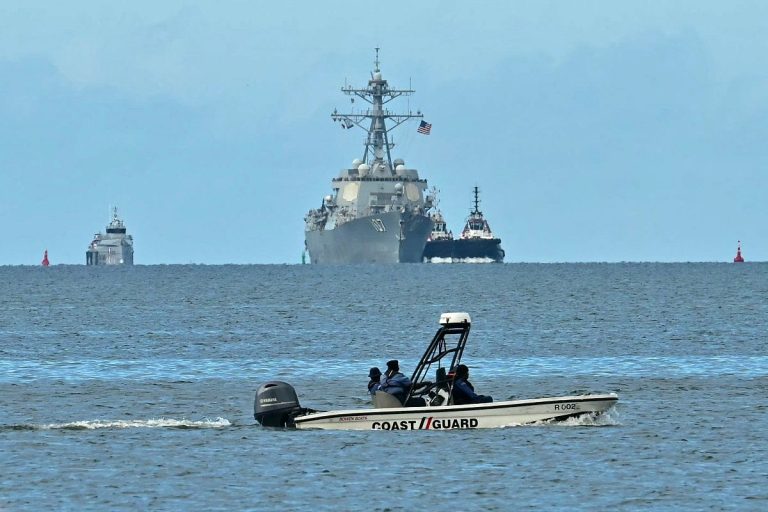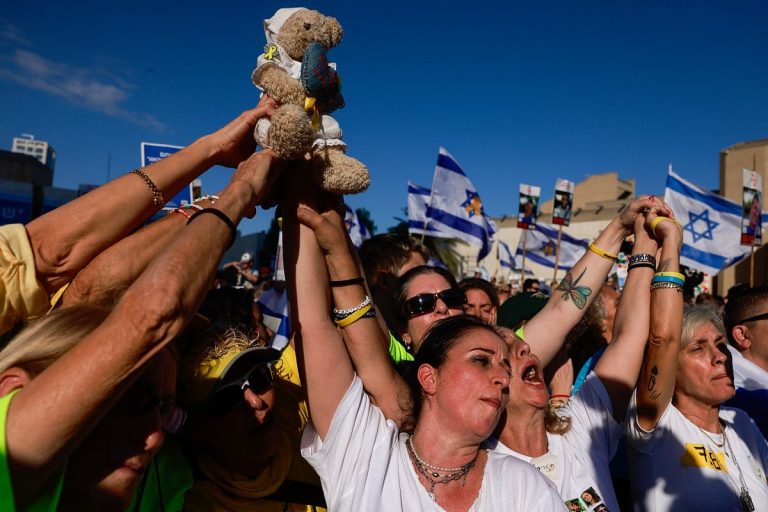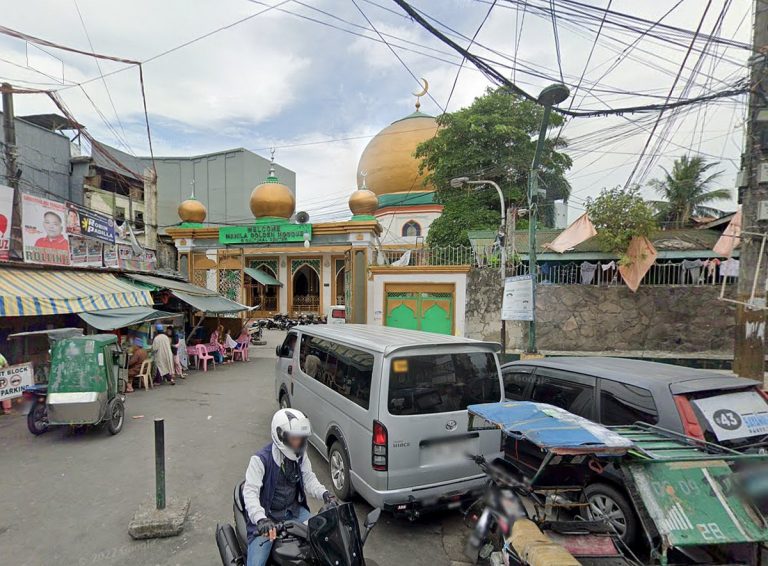US Military Increases Forces Near Venezuela Amid Tensions
Recent developments have intensified the already strained relations between the United States and Venezuela. In a significant show of military strength, the U.S. has deployed B-52 bombers near Venezuelan airspace, signaling a firm stance against President Nicolás Maduro’s government amid allegations of drug trafficking and political unrest.
Military Deployment Overview
On October 15, 2025, three B-52 Stratofortress bombers departed from Barksdale Air Force Base in Louisiana. They flew for several hours in international airspace approximately 150 miles north of Venezuela’s coast. This operation, reported by U.S. media, was characterized as a demonstration of military capability over the Caribbean Sea, with the bombers flying openly and signaling their presence by keeping their transponders on.
This deployment is part of a larger military buildup in the Caribbean, which includes around 10,000 U.S. troops, Marines stationed on ships, fighter jets, attack drones, and special operations forces engaged in training exercises near Venezuelan waters. The U.S. government has framed these actions as necessary measures to combat narcotics trafficking, accusing Maduro’s administration of complicity in drug-related crimes.
Justification for Military Action
The Trump administration has labeled Nicolás Maduro an illegitimate leader, claiming he is involved in drug conspiracies. In a bid to bolster efforts against drug trafficking, the U.S. has offered a reward of $50 million for information leading to Maduro’s arrest. While no direct ground operations have been initiated, President Trump has indicated a willingness to extend military pressure into Venezuelan territory, asserting that the U.S. maintains control over maritime routes and is considering land-based actions.
Ongoing Operations and Future Implications
The U.S. military’s increased presence is not limited to aerial operations. Recent strikes have targeted boats suspected of drug smuggling in the region, further escalating tensions. The situation remains fluid, with special forces continuing their training exercises close to Venezuelan waters, suggesting that the U.S. is preparing for a range of potential responses should the situation deteriorate further.
FAQs
What prompted the U.S. military deployment near Venezuela?
The deployment was part of a strategy to increase pressure on Nicolás Maduro’s government, which the U.S. accuses of drug trafficking and political corruption.
How many troops are involved in the U.S. military buildup in the Caribbean?
Approximately 10,000 U.S. troops are involved in the military buildup, including Marines, fighter jets, and special operations forces.
Has the U.S. conducted any military strikes in Venezuela?
Yes, the U.S. has conducted strikes against boats suspected of drug trafficking near Venezuela, but no ground invasion has been confirmed.
Conclusion
The U.S. military’s recent actions near Venezuela reflect a significant escalation in diplomatic and military tensions. As the situation evolves, the U.S. appears prepared to take further measures to counter perceived threats from Maduro’s government. Continued monitoring of developments in the region will be essential as both nations navigate this complex geopolitical landscape.
The U.S. has a long history of involvement in Latin America, particularly in countries where it perceives threats to its national security or interests. The current military buildup near Venezuela is part of a broader strategy that includes diplomatic efforts, economic sanctions, and military readiness. The U.S. has imposed various sanctions on Venezuelan officials and state-owned enterprises, aiming to isolate the Maduro government and pressure it to restore democratic governance. This multi-faceted approach reflects the U.S. commitment to counteracting what it views as authoritarianism in the region.
Venezuela, rich in oil reserves, has faced significant economic challenges and political instability in recent years, leading to widespread protests and a humanitarian crisis. The Maduro government has accused the U.S. of attempting to orchestrate a coup and destabilize the country. In response to the U.S. military presence, Venezuelan officials have vowed to defend their sovereignty and have conducted military exercises of their own, emphasizing their readiness to respond to any perceived aggression. This ongoing cycle of military posturing and rhetoric contributes to an increasingly volatile situation in the region, with potential implications for neighboring countries and international relations.
Also Read:
Trump Warns Hamas Amid Escalating Gaza Violence

